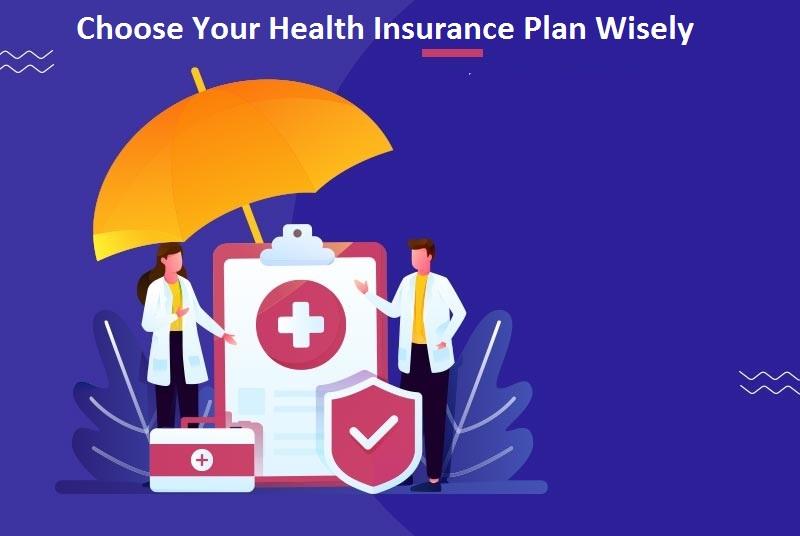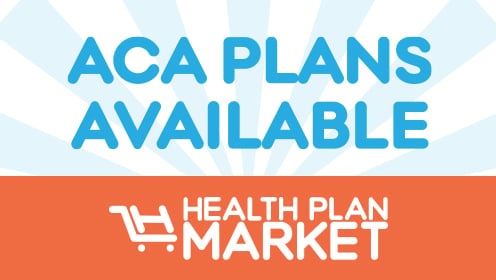People can sign up for health insurance during the open enrollment period or when they first become eligible for coverage, such as starting a new job. You can also sign up and make changes to your health coverage if you have a qualifying event, such as losing other coverage, a spouse’s death, getting married or having a child.
KEY TAKEAWAYS
- Open enrollment is a time to sign up for health insurance or make changes to your coverage.ACA marketplace, employer and Medicare plans have their own open enrollment periods.
- You can also sign up for coverage during your initial enrollment period, such as after becoming eligible for coverage with a new job.
- To qualify for a special enrollment period, you must have a qualifying event, such as having a child, getting married or losing your health coverage.
- Some types of coverage, such as Medicaid, don’t have open enrollment periods, so you can sign up any time if you’re eligible.
Here’s what you need to know about when you can enroll in health insurance.
When is open enrollment for 2023?
If you’re getting a plan from the marketplace, the open enrollment period for the health insurance marketplace begins on November 1st, 2022. In most states, it ends on December 15th, 2022, but the date may vary for some states.
However, employers create their own open enrollment window. These are periods either once or twice per year.
Meanwhile, Medicare has three periods for enrollment:
- When you become eligible for Medicare, you can join a Medicare plan no matter what month or day it is.
- After your initial eligibility, you can join Medicare during the open enrollment period, which is from October 15th to December 7th.
- If you’re switching from one Medicare Advantage Plan to another, you can enroll in your new plan from January 1st to March 31st.
What is an open enrollment period?
Open enrollment when you can make changes to your health insurance plan. You can also sign up for a new plan during open enrollment.
You’re able to enroll in a plan through:
- Your employer
- An individual health plan through your state’s or the federal government-run insurance marketplace or directly through an insurance company
- Medicare
During the annual open enrollment period, you can change your current plan or obtain new coverage. It’s important to make these choices carefully, says Gretchen Jacobson, vice president, Medicare, for The Commonwealth Fund.
“The best plan for your friend may not be the best plan for you,” she says. “Each plan has different benefits, different drug coverage and different health care providers in their networks.”
Selecting the right health insurance plan can be challenging. Each year, millions of Americans have the opportunity to choose a new plan, or to tweak their existing coverage. But with so many options available, how can you know if you are making the right choice?
“Get educated,” says Paul Fronstin, director of the health research and education program at the Employee Benefit Research Institute. “There are potentially options out there for you.”
Fronstin adds that such alternatives may or may not be better than the plan you already have. “But that is something you have to figure out,” he says.
How to prepare for open enrollment?
Choosing a health insurance package can be daunting, especially because you don’t know in advance what your expenses will be over the following year.
“You can’t always predict what the best plan’s going to be,” Fronstin says. “The whole point of insurance is to be there for unexpected expenses.”
Take time to understand what you are purchasing, whether during the standard enrollment window or a special enrollment period.
If you have questions about finding the right plan for your needs, you may benefit from finding a reputable, licensed insurance broker or working with one of your state marketplace’s navigators, whose job it is to point people toward workable plans.
However, in the end, remember that it’s often hard to know in advance whether you’re making the right choice. Fronstin offers the example of a young person who is healthy and rarely visits the doctor. Such an individual may try to save money by choosing a cheap plan with a high deductible.
“But that doesn’t mean in hindsight after a year that will have been the best option for you, because maybe you broke your arm riding your bike,” he says.
In the end, even a decision that’s correct at the time you made it might be something you regret later. “That’s the nature of insurance — you’re placing a bet,” Fronstin says. “Sometimes you win and sometimes you lose.”
What is special enrollment?
If you don’t sign up for health insurance during the allocated time, you must wait until the next open enrollment period unless you have a qualifying event that makes you eligible for a special enrollment period (SEP).
If you have a qualifying event, you can purchase health insurance or change your existing coverage without waiting until the next open enrollment. If you don’t have a qualifying event, you’re required to maintain your insurance as is until the following enrollment period.
What is a qualifying event for health insurance?
There are two types of triggers for SEPs:
- Loss of eligibility for health coverage
- Certain life events
Life events that create a special enrollment period include:
- Marriage
- Birth or adoption
- Death of a spouse or dependent
- Job loss
- Job change
- Retirement
- Reduction in work hours
- Relocation
Your state may offer additional rules for life events that create an SEP. For example, in New York, women who become pregnant may add or change coverage.
Most qualifying events trigger a special enrollment period whether you have a marketplace plan, individual plan or workplace plan. However, that’s not always the case. According to the Kaiser Family Foundation, some events only qualify you for a special enrollment period in the marketplace and don’t apply to the outside market. The exceptions are situations related to citizenship, native status and exceptional circumstances.
Also, the changes you make to your health plan due to a qualifying life event should be consistent with the event. For example, if you get married, you can drop your health insurance, but only if you’re enrolling in your spouse’s health plan.
| QUALIFYING LIFE EVENT | OPTIONS |
|
CHANGE IN FAMILY SIZE
| |
|
Marriage |
|
|
Dissolution of marriage (includes divorce, annulment and legal separation) |
|
|
Death of spouse |
|
|
Adoption |
|
| Pregnancy (New York only) |
|
| Dependent moves to own policy |
|
| Dependent becomes ineligible at age 26 |
|
| Dependent’s death |
|
|
CHANGE IN EMPLOYMENT STATUS
| |
| Job change within the same organization (includes promotion, demotion and transfer) |
|
|
Loss of employment |
|
| Loss of full-time status (30-39 hours per week) |
|
| Loss of full-time status (20-29 hours per week) |
|
|
Loss of full-time status (0-19 hours per week) |
|
| Newly benefit-eligible |
|
| Part-time to full-time |
|
|
Spouse loses employment |
|
| Spouse becomes employed |
|
|
Spouse’s employment status changes |
|
|
Retirement (with no retiree health benefits from former employer) |
|
| Spouse loses traditional or retiree coverage |
|
| Begin unpaid leave (30+ days) |
|
| Return from unpaid leave (30+ days) |
|
|
Return from military leave |
|
|
CHANGE IN RESIDENCE
| |
|
Change of residence |
|
|
MEDICARE or MEDICAID ELIGIBILITY
| |
| Become eligible for Medicare or Medicaid |
|
| Lose eligibility for Medicare or Medicaid |
|
|
OTHER
| |
| Court order |
|
| Significant coverage changes |
|
| Changes in your income that affect the coverage for which you qualify (Marketplace plan) |
|
| Become a U.S. citizen (Marketplace plan) |
|
| Leaving incarceration – prison or jail (Marketplace plan or with private insurer) |
|
| Survivor of domestic abuse/violence or spousal abandonment (Marketplace plan) |
|
| Had a serious medical condition or natural disaster that kept you from enrolling (Marketplace plan) |
|
|
WHO DOESN’T NEED A QUALIFYING EVENT?
| |
| Medicaid enrollment
|
|
| CHIP (Children’s Health Insurance Program) enrollment
|
|
| Indigenous Americans & Alaska Natives (Marketplace plans) |
|
*Insure.com works to keep an updated and comprehensive list; however, the special enrollment chart may not apply to every benefit plan (especially dental and group life insurance that may be included in your workplace plan) and individual circumstances should be verified with your health insurance administrator.
Sources:
HealthCare.gov. “When can you get health insurance?” Accessed June 2022.
Kaiser Family Foundation. “Summary of the Affordable Care Act.” Accessed June 2022.
Medicare.gov. “Joining a health or drug plan.” Accessed June 2022.










